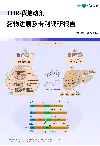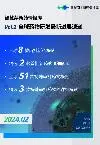U.S. Life Science Tools Market Size To Hit USD 140.44 Bn By 2033
2024-04-05
上市批准
According to the latest research by nova one advisor, the U.S. life science tools market size was valued at USD 57.19 billion in 2023 and is estimated to hit around USD 140.44 billion by 2033, growing at a noteworthy CAGR of 9.4% from 2024 to 2033.
Request PDF Sample Copy of Report: (Including Full TOC, List of Tables & Figures, Chart) @
This can be attributed to a rise in government funding for life science technologies, growth of cell & gene therapies, increase in demand for biopharmaceuticals, and rise in competition among prominent market entities. An increase in the number of strategic deals & developments, coupled with growing investments in R&D for life science tools, is expected to further drive the market. The increase in revenue is primarily attributed to the swift progress made by life science tool companies in areas such as sequencing, mass spectrometry, chromatography, nuclear magnetic resonance, and other diverse products.
The U.S. accounted for over 44.8% of the global life science tools market in 2023. The market is propelled by investments and funding aimed at developing advanced therapeutics, coupled with a persistent demand for innovative medicines and treatments. This demand is fuelled by the escalating prevalence of diseases like cancer, kidney and thyroid disorders, and diabetes. The COVID-19 pandemic has had a significant effect on numerous industries and their related supply chains worldwide. This is primarily due to interruptions in the provision of essential materials, such as a lack of raw materials and workforce. Moreover, the transportation of raw materials across various regions was suspended. These circumstances have resulted in a deficit of medical supplies, including molecular and immunoassay kits, digital solutions, life-support machines, and medications in various parts of the world.
Moreover, the pandemic has led the market to develop quick diagnostic tests for the SARS-CoV-2 virus, leading manufacturers to introduce innovative solutions. Some of these tests identify the SARS-CoV-2 nucleic material using the PCR technique or methods related to nucleic acid hybridization, while others are serological and immunological assays that detect antibodies produced in response to the virus. For instance, in December 2021, Siemens Healthineers obtained Emergency Use Authorization from the U.S. FDA for its COVID-19 rapid test, CLINITEST Rapid COVID-19 Antigen Self-Test, which can be used for self-testing by individuals aged 14 and above. The market will be propelled by new developments related to the pandemic, government funding, product approvals, and ongoing product launches.
The market is expected to grow due to the increasing demand and development of gene and cell therapies. Companies are intensifying their research and development efforts to create effective gene therapies that address diseases at the genomic level, in response to the need for strong disease treatment methods. The number of products approved by the FDA is increasing, indicating a promising future for gene therapies. Furthermore, the progress in recombinant DNA technology is likely to increase the number of clinical trials for gene therapy. For example, the FDA anticipated receiving over 200 applications each year for clinical trials of cell and gene therapies by 2029, as of 2020.
The field of cancer therapy is witnessing rapid advancements with the evolution of monoclonal antibodies. As per a January 2021 article by mAbxience, 27 such antibodies have received approval for the treatment of various cancers. The use of biologics is expanding due to the increasing FDA approvals of monoclonal antibodies in diagnostics and cancer therapy. For example, in January 2022, the FDA approved a monoclonal antibody named Tebentafusp-tebn, which is beneficial in treating metastatic uveal melanoma. The market growth is expected to be propelled by government support and the escalating demand for innovative therapeutics.
Key Takeaways:
Cell biology technology dominated the market and accounted for the largest share of 33.11% in 2023.
Genomics technology is expected to grow at the fastest CAGR of 12.7% over the forecast period.
Cell culture systems and 3D cell culture dominated the market and held the largest share of 18.9% in 2023.
Next-generation sequencing (NGS) is expected to grow at the fastest CAGR of 19.8% during the forecast period.
The healthcare segment dominated the market and held the largest share of over 32.8% in 2023 and is expected to grow at the fastest CAGR during the forecast period.
Biopharmaceutical companies is expected to have a lucrative growth during the forecast period.
Immediate Delivery Available, Get Full Access@
Segments Insights:
Technology Insights
Cell biology technology dominated the market and accounted for the largest share of 33.11% in 2023. Continuous developments in cells analysis technologies such as microscopy, cytometry, high content analysis, have a significant impact over the growth of immunology, oncology research, stem cell research, and drug discovery. For instance, a novel nanofluidic technology developed with early input by Amgen and invented by Berkeley Lights uses light to manipulate cells. This novel digital cell biology technology can enable scientists’ resource-efficient and rapid ways to run standard biotech experiments. Introduction of novel technologies for usage and adoption of stem cells, CAR T-cells, TCR T-cells, NK T-cells, and other cell therapies boosts revenue generation in this segment. Automation in the storage and processing of cord blood and adult stem cells is expected to positively influence segment growth.
Genomics technology is expected to grow at the fastest CAGR of 12.7% over the forecast period. Genomics, which encompasses the evolutionary, comparative, and functional study of genomes, has seen a rapid expansion in its product range for conducting genomic analysis, thanks to the advent of various supportive technologies. Major innovators such as Thermo Fisher Scientific, QIAGEN, Illumina, and Pacific Biosciences of California, Inc. are at the forefront of developing instruments for diverse genomic applications. The increasing awareness of genomics’ role in managing human diseases and its potential in unconventional applications has spurred the use of genomic data. This has intensified competition among companies to launch new products and technologies that utilize genetic information, thereby tapping into the abundant opportunities in the market.
Product Insights
Cell culture systems and 3D cell culture dominated the market and held the largest share of 18.9% in 2023. Research into the potential of cell biology have yielded significant breakthroughs, thereby contributing to revenue growth. Comprehensive understanding of cell biology has become a crucial component in laboratory workflows, paving the way for market expansion. Furthermore, life science researchers are keen to incorporate new and sophisticated instruments, which is anticipated to strengthen this segment further. This trend in the industry has also motivated numerous major manufacturers to broaden their range of instruments. Companies such as Cytiva, BioTek Instruments, Horizon Discovery, and Seahorse Bioscience, to name a few, are striving to launch instruments related to cell analysis, cell biology, and imaging.
Next-generation sequencing (NGS) is expected to grow at the fastest CAGR of 19.8% during the forecast period. NGS systems enable the concurrent sequencing of numerous genome samples. These systems are adept at handling a vast array of sequencing reactions at the same time. The streamlining of the NGS process, coupled with ongoing reductions in the cost of equipment and reagents, is expected to encourage more widespread use of this biotechnological method. Furthermore, advancements in bioinformatics are likely to increase the use of NGS in both high-throughput and even low-throughput research. For instance, in February 2022. Beckman Coulter Life Sciences entered into an application development agreement with Illumina, Inc. for the Biomek NGeniuS Next Generation Library Preparation System.
End-use Insights
The healthcare segment dominated the market and held the largest share of over 32.8% in 2023 and is expected to grow at the fastest CAGR during the forecast period. The increasing use of proteomic and genomic workflows in hospitals for diagnosing and treating various diseases is anticipated to spur growth. Furthermore, the rising use of tissue diagnostics and NGS services in hospitals is predicted to propel the market. Numerous hospitals and clinics are presently offering sequencing facilities to patients and are exploring the application of advanced tools and technology in everyday medical practice. Stanford Medicine, for instance, offers sequencing services to individuals with rare or undiagnosed genetic conditions. Partners HealthCare in the U.S. is among the first hospital systems to provide public genomic sequencing, analysis, and interpretation services. The use of genomic sequencing in a hospital or clinical environment is expected to enhance patient care while reducing healthcare costs. As a result, the healthcare sector is projected to experience the most rapid growth in the coming years.
Biopharmaceutical companies is expected to have a lucrative growth during the forecast period. The surge in biopharmaceutical R&D activities is fostering the use of life science tools. Companies like Thermo Fisher Scientific and Merck KGaA have invested heavily in bioprocessing capabilities and biopharmaceutical manufacturing units, respectively. The growing demand for biologics has led to increased investments in expanding manufacturing facilities. For example, Alexion invested in drug production facilities in Ireland, and Upperton Pharma Solutions invested in facility expansion, significantly increasing R&D space and GMP manufacturing. These strategic initiatives, aimed at enhancing the production of novel biologics, are expected to drive market growth.
U.S. Life Science Tools Market Recent Developments
In January 2023, Agilent Technologies, Inc. announced investment of USD 725 million to expand its manufacturing capacity for production of nucleic acid based therapeutics. This expansion is intended to cater to the increasing market demand, bolster production capabilities, and aid in the creation of drugs aimed at treating various ailments such as cancer and cardiovascular diseases.
In September 2022, Becton, Dickinson and Company (BD) launched BD Research Cloud software solution to streamline flow cytometry workflow for quick and quality insights for researchers working across several disciplines, including oncology, immunology, virology, and infectious disease monitoring.
In September 2022, Agilent Technologies, Inc. announced collaboration with METTLER TOLEDO to minimize errors in the sample preparation workflow for enhanced chromatographic results.
Key U.S. Life Science Tools Companies:
Agilent Technologies, Inc.
Becton, Dickinson and Company
F. Hoffmann-La Roche Ltd.
Bio-Rad Laboratories, Inc.
Danaher Corporation
Illumina, Inc.
Thermo Fisher Scientific, Inc.
QIAGEN N.V.
Merck KGaA
Shimadzu Corporation
Hitachi, Ltd.
Bruker Corporation
Oxford Instruments plc
Zeiss International
Segments Covered in the Report
This report forecasts revenue growth at country levels and provides an analysis of the latest industry trends in each of the sub-segments from 2021 to 2033. For this study, Nova one advisor, Inc. has segmented the U.S. Life Science Tools market.
By Technology
Genomic Technology
Proteomics Technology
Cell Biology Technology
Other Analytical & Sample Preparation Technology
Lab Supplies & Technologies
By Product
Cell Culture Systems & 3D Cell Culture
Instruments
Consumables
Cell & Tissue Culture Services
Liquid Chromatography
Instruments
Consumables
Services
Mass Spectrometry
Instruments
Consumables
Services
Flow Cytometry
Instruments
Consumables
Services
Cloning & Genome Engineering
Kits, Reagents, and Consumables
Services
Microscopy & Electron Microscopy
Instruments
Consumables
Services
Next Generation Sequencing
Instruments
Consumables
Services
PCR & qPCR
Instruments
Consumables
Services
Nucleic Acid Preparation
Instruments
Consumables
Services
Nucleic Acid Microarray
Instruments
Consumables
Services
Sanger Sequencing
Instruments
Consumables
Services
Transfection Devices & Gene Delivery Technologies
Equipment
Reagents
NMR
Instruments
Consumables
Services
Other Separation Technologies
Instruments
Consumables
Services
Other Products & Services
Antibodies
General Supplies
Others
Instruments
Consumables
Services
By End-use
Government & Academic
Biopharmaceutical Company
Healthcare
Industrial Applications
Others
Immediate Delivery Available | Buy This Premium Research
Call: USA: +1 650 460 3308 | IND: +91 87933 22019 |Europe: +44 2080772818
Email: sales@novaoneadvisor.com
更多内容,请访问原始网站
文中所述内容并不反映新药情报库及其所属公司任何意见及观点,如有版权侵扰或错误之处,请及时联系我们,我们会在24小时内配合处理。
靶点
-立即开始免费试用!
智慧芽新药情报库是智慧芽专为生命科学人士构建的基于AI的创新药情报平台,助您全方位提升您的研发与决策效率。
立即开始数据试用!
智慧芽新药库数据也通过智慧芽数据服务平台,以API或者数据包形式对外开放,助您更加充分利用智慧芽新药情报信息。





